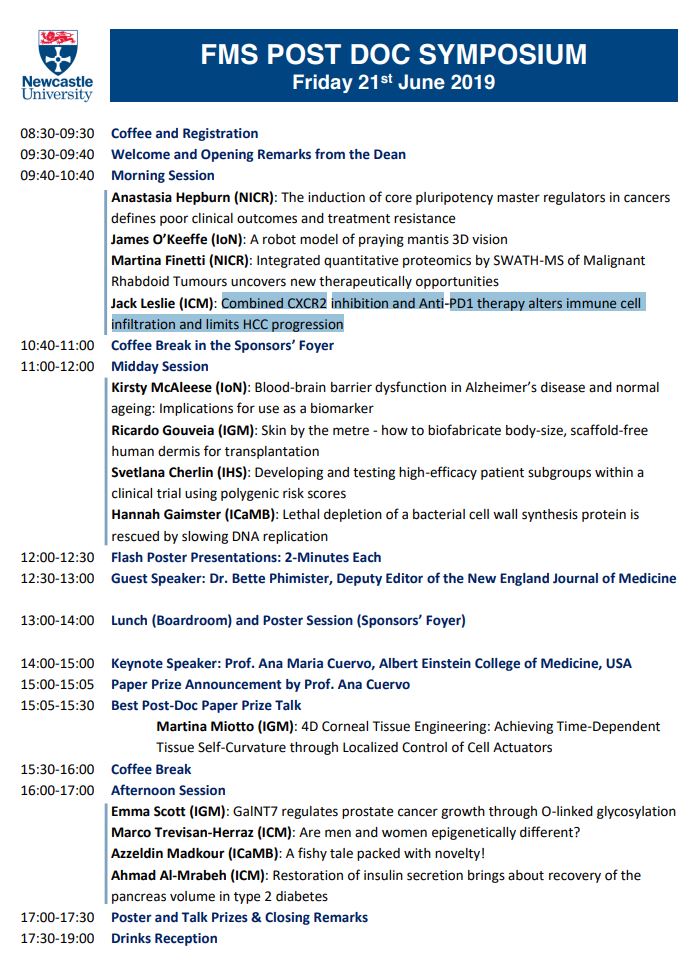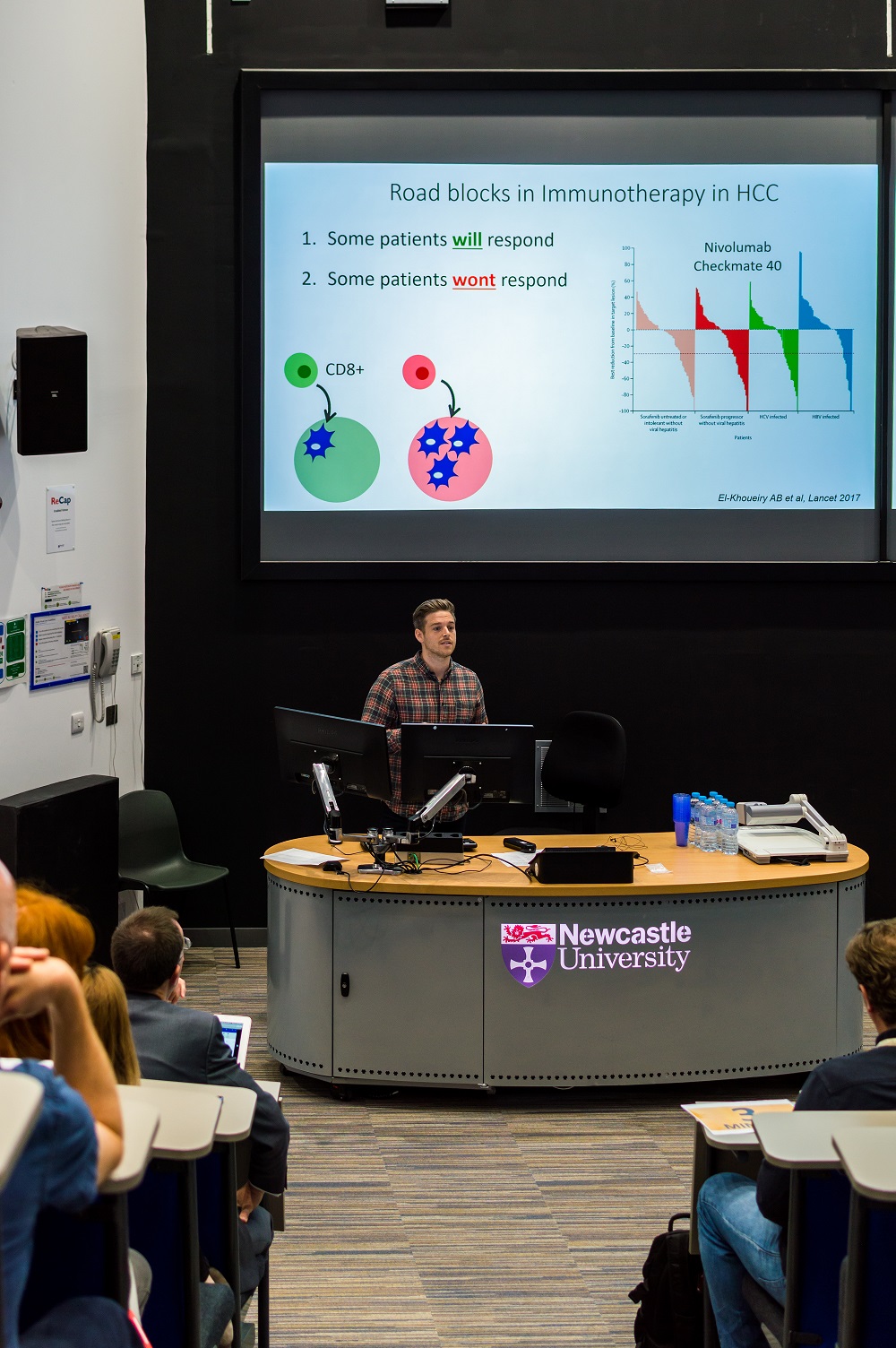Jack Leslie awarded best talk at PostDoc Sumposium
Jack Leslie Awarded Best Talk Prize at FMS PostDoc Symposium

On Friday 21st of June 2019, the Medical School of Newcastle University held the second Faculty of Medical Sciences FMS Post-Doc Symposium.
On this occasion, Dr Jack Leslie from Newcastle Fibrosis Research Group gave an impressive talk entitled:
Combined CXCR2 inhibition and Anti-PD1 therapy alters immune cell infiltration and limits HCC progression
For his brilliant presentation, Jack Leslie was awarded the prize for the best talk of the symposium and received his prize from Prof Derek Mann, Dean of Research and Innovation of the faculty.
Abstract of Jack Leslie's presentation:
Background and Aims: Hepatocellular carcinoma (HCC)isthe most common primary liver malignancy and is a leading cause of cancer-related death worldwide. Immune cells play a complex role in cancer, both promoting and limiting tumour progression. In the tumour microenvironment immunosuppressive neutrophils limit T cell activation, promoting tumorigenesis. Using a model of NAFLD associated HCC, we explored the therapeutic impact of impairing neutrophil chemotaxis into the liver, while promoting T cell activation.
Method: The DEN/ALIOS model of NAFLD-HCC was used. Male C57Bl6/j mice receiving a single intraperitoneal injection of N-Nitrosodiethylamine (DEN) at 2 weeks old were placed on to American Lifestyle-Induced Obesity Syndrome (ALIOS) diet at 8 weeks until culling at 40 weeks. Mice received ‘late stage’ vehicle control, a CXCR2 inhibitor and/or an anti-PD1 antibody for the final 12 weeks after tumours have already been established.
Results: Late stage treatment with anti-PD1 therapy in the DEN/ALIOS model had no effect on tumour stage or grade. Treatment with the CXCR2 inhibitor limited both tumour stage and grade, with the combination therapy reducing them further.
Treatment also had a profound effect on hepatic immune cell infiltration. CXCR2 inhibition reduced neutrophil infiltration but increased T cell numbers. Interestingly, combined therapy resulted in a large influx of neutrophils into the tumour but also a CD8+ rich T cell infiltrate. We hypothesise that combination therapy promotes the influx of anti-tumour rather than pro-tumour/ immunosuppressive neutrophils.
The effects of CXCR2 inhibition and anti-PD1 therapy alone compared to their combination highlights critical tumour promoting bidirectional crosstalk between neutrophils and T cells in the tumour microenvironment.
Conclusion: Our data provides the first evidence, in a murine model of late stage NAFLD- HCC, that dual targeting of neutrophils and T cells with the combination of a CXCR2 inhibitor and anti-PD1 therapy, combats HCC progression and has therapeutic potential.
The FMS Post-Doc Symposium is a particularly important event as it is an exciting moment for the sharing of cutting-edge research performed by the faculty's post-docs
This second edition was honoured by the presence of a prestigious keynote speaker: Prof. Ana Maria Cuervo, co-director of the Einstein Institute for Aging Research at the Albert Einstein College of Medicine in New York. The focus of her laboratory’s research is on understanding protein transport into lysozomes and how defects in the lysosomal system contribute to ageing and disease, cutting across many themes of interest to the Faculty of Medical Sciences.
See full program below.
Last modified: Tue, 02 Jul 2019 10:55:19 BST


